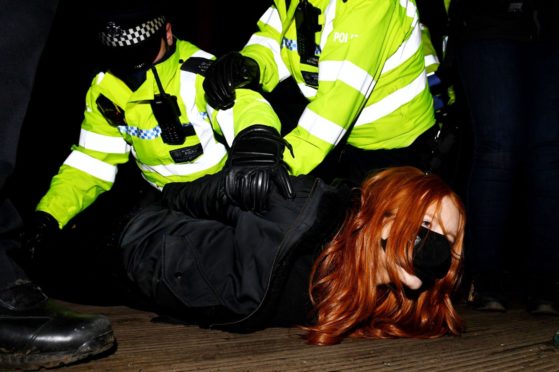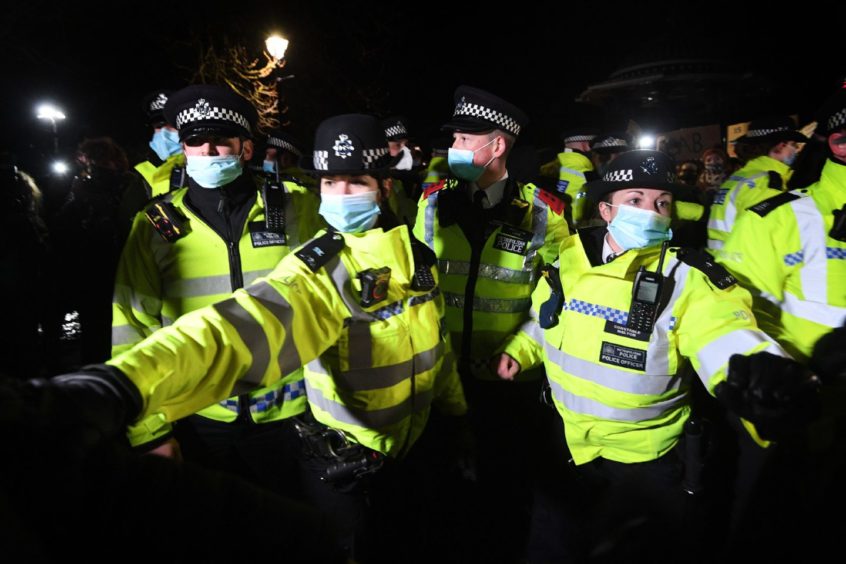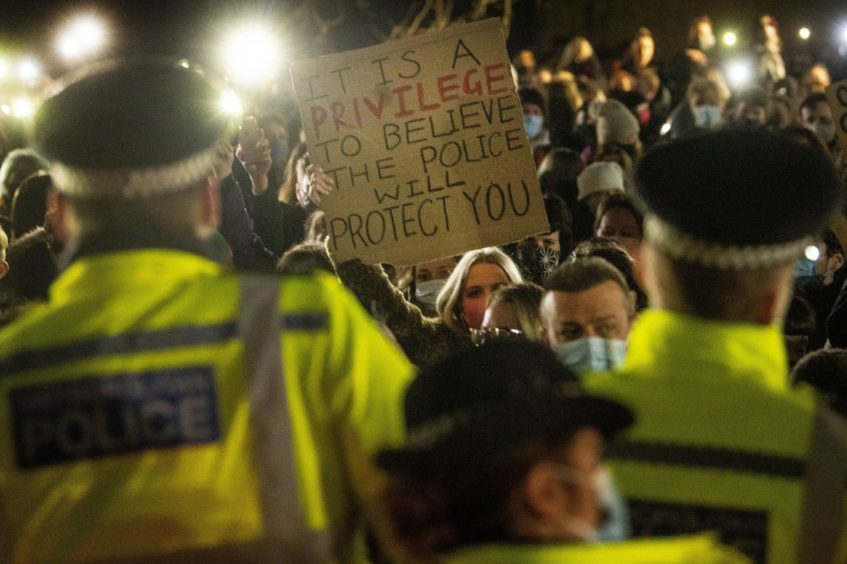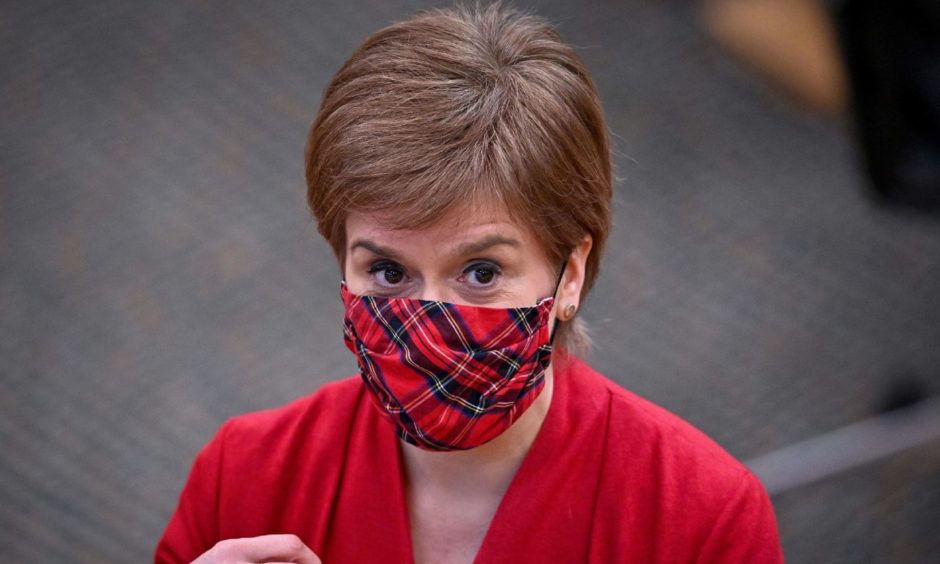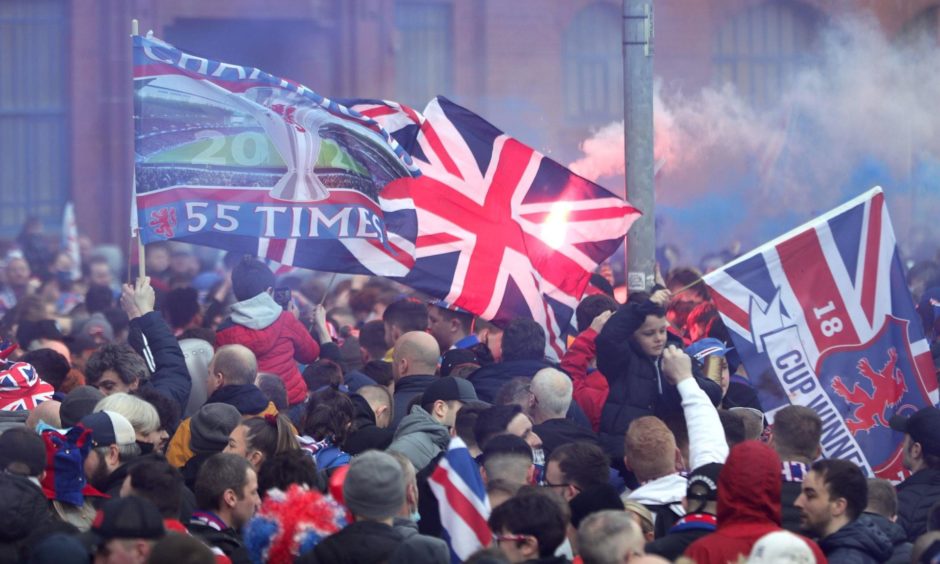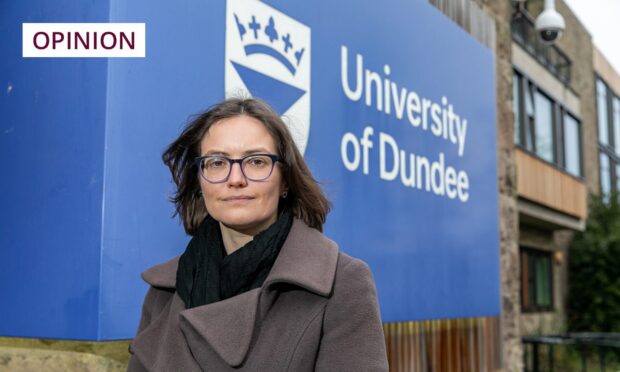It has been extraordinary to watch over the past few days the almost unanimous condemnation of London’s police force from across the political spectrum.
Extraordinary not because the Met didn’t deserve the criticism – there is no arguing that their response to a peaceful vigil on Clapham Common on Saturday night was heavy-handed and wholly inappropriate, given that the event was to mark the murder of a young woman and highlight female vulnerability to male violence.
There was immediate outrage from politicians and commentators on the left and right, a rare consensus among folk who agree on little else.
But what so many of those who jumped on the bandwagon seemed to forget was that they supported the policies that gave rise to the ugly scenes.
It was politicians who removed people’s democratic right to protest as part of Covid legislation that banned mass gatherings.
Draconian rules
The vigil for Sarah Everard would probably not have been broken up so forcibly if the government had not used the pandemic to turn the country into what at times (last Saturday, for example) resembles a police state.
In the Commons, draconian rules curbing civil liberties were passed with all-party backing, with the Labour opposition more exercised about restrictions not being strict enough than they were about denying basic freedoms.
Yet Sir Keir Starmer this week blamed the police, saying their behaviour was “deeply disturbing” and “not the way to police this protest”.
And the Mayor of London, Sadiq Khan, a champion of harsher, longer lockdowns for the capital, declared the scenes “unacceptable”.
Meanwhile, Home Secretary Priti Patel described the footage at the Clapham Common bandstand as “upsetting” and the Prime Minister found it all “very distressing”. What did they expect?
As Lord Blair, former Met commissioner, said in a letter to the Times, politicians “bear responsibility for the often contradictory and frequently changed Covid restrictions, which they passed into law and then expected police to enforce — or maybe not to enforce”.
The Met insisted officers were doing just that, enforcing coronavirus regulations. “Hundreds of people were packed tightly together, posing a very real risk of easily transmitting Covid-19,” said Assistant Commissioner Helen Ball.
Never mind that there is little Covid transmission outside – the pandemic didn’t spread on packed beaches last summer, according to Edinburgh University’s Professor Mark Woolhouse, and if there had been a surge following the Black Lives Matter demonstration last June, we would have heard about it.
It is not the police’s job to make up Covid laws but they have the unfortunate task of having to implement them, however unreasonable.
No justification for Covid rules extension
The same is true for Scotland, where ministers and their advisers have gone even further down the authoritarian road. Because we are under the rule of nationalists, this has resulted in xenophobia and the focus has been on closing borders.
While some lockdown measures may have been proportional in the early days when we had no treatments and no vaccines, the extension of government writ into every aspect of our lives can never be justified.
Yet there have been more cheerleaders, of all political persuasions, for repression than there have been for liberation.
Strange. Can people not see that a direct consequence of an overbearing, unchecked state is an overbearing, unchecked police force?
Now, and notwithstanding the over-reach of police in Clapham, our best hope for a return to normal is when the police can’t or won’t do the government’s bidding.
Police Scotland refused to carry out border checks “simply to enforce coronavirus regulations” when Nicola Sturgeon introduced separate quarantine laws last month. Her unilateral ploy to eliminate Covid in Scotland thus died a death.
In England, the chairman of the Metropolitan Police Federation, Ken Marsh, reportedly said in the week before the Clapham Common incident that the lockdown rules were no longer manageable: “Police don’t want to police this. We’ve had enough of this.”
Police apologetic
This much is obvious if you venture out. There is little or no police presence on trains between Scotland and England. City parks countrywide have never been busier, and Ubers do a roaring trade transporting people to each other’s homes while restaurants and pubs remain closed.
From anecdotal evidence, when the odd curtain twitcher summons the local constabulary to break up a party of three, the police are more apologetic than the miscreants.
In the wake of the Glasgow police’s Softly Softly approach with rampaging Rangers fans, Sturgeon is threatening to ban football matches if there is a repeat at this weekend’s fixture with Celtic.
But government crackdowns are meaningless without the strong arm of the law. Following the Clapham Common backlash, any still zealous copper is going to think twice before policing Covid “offences”.
